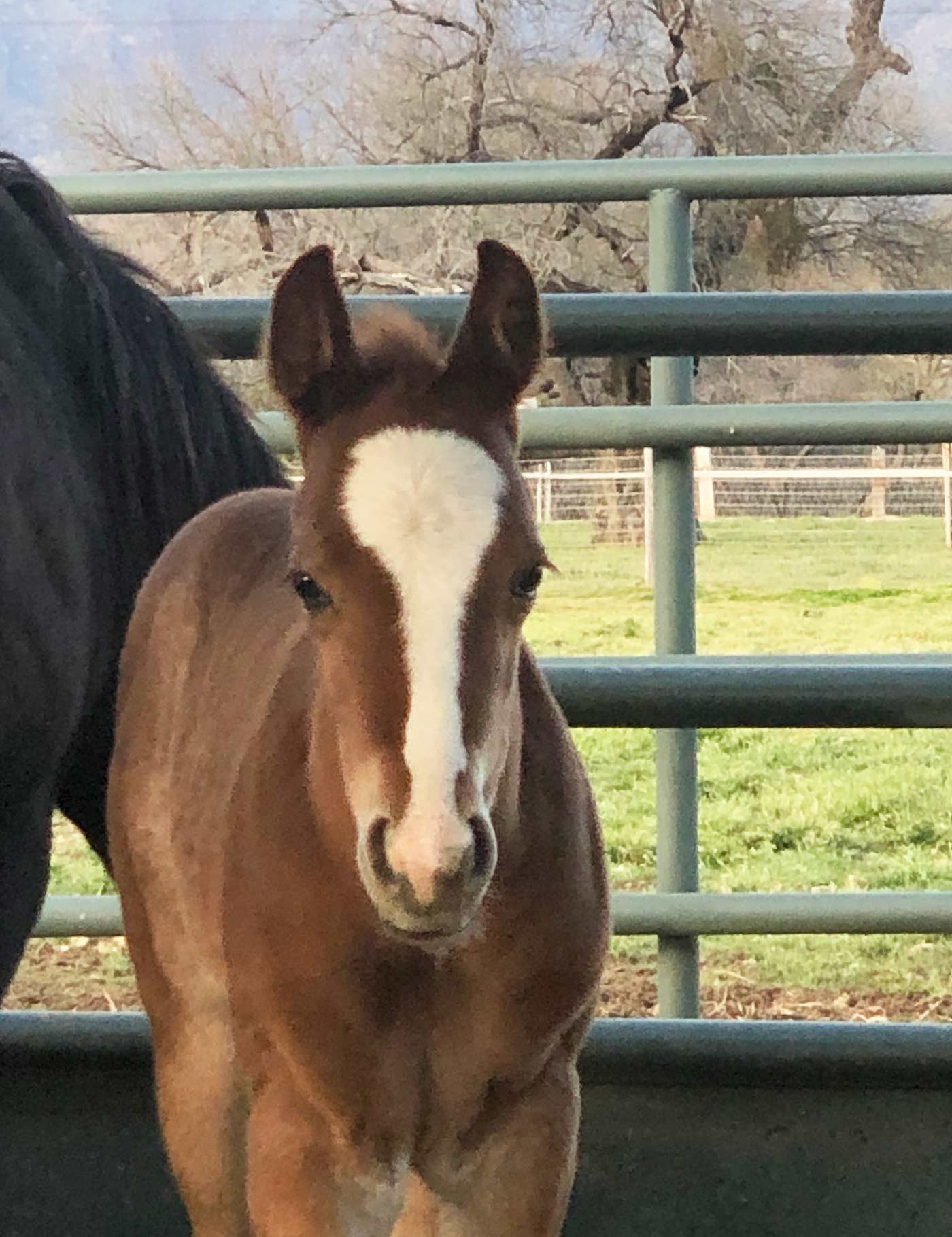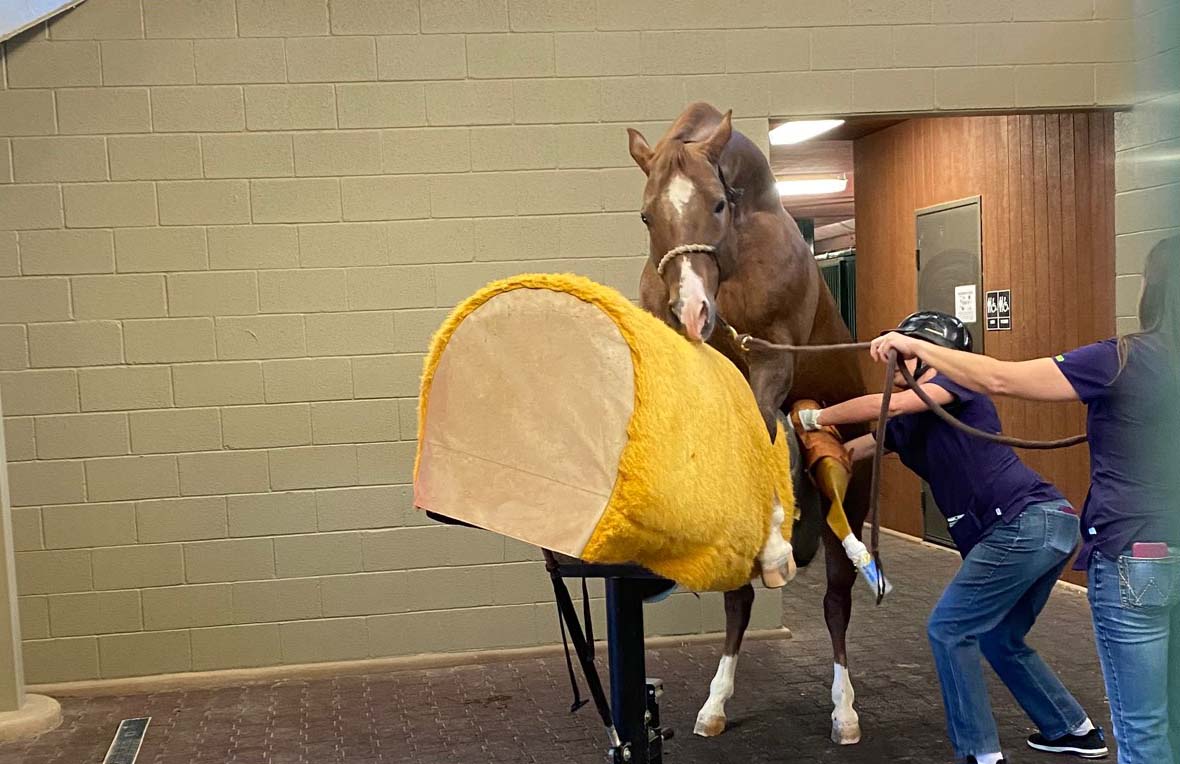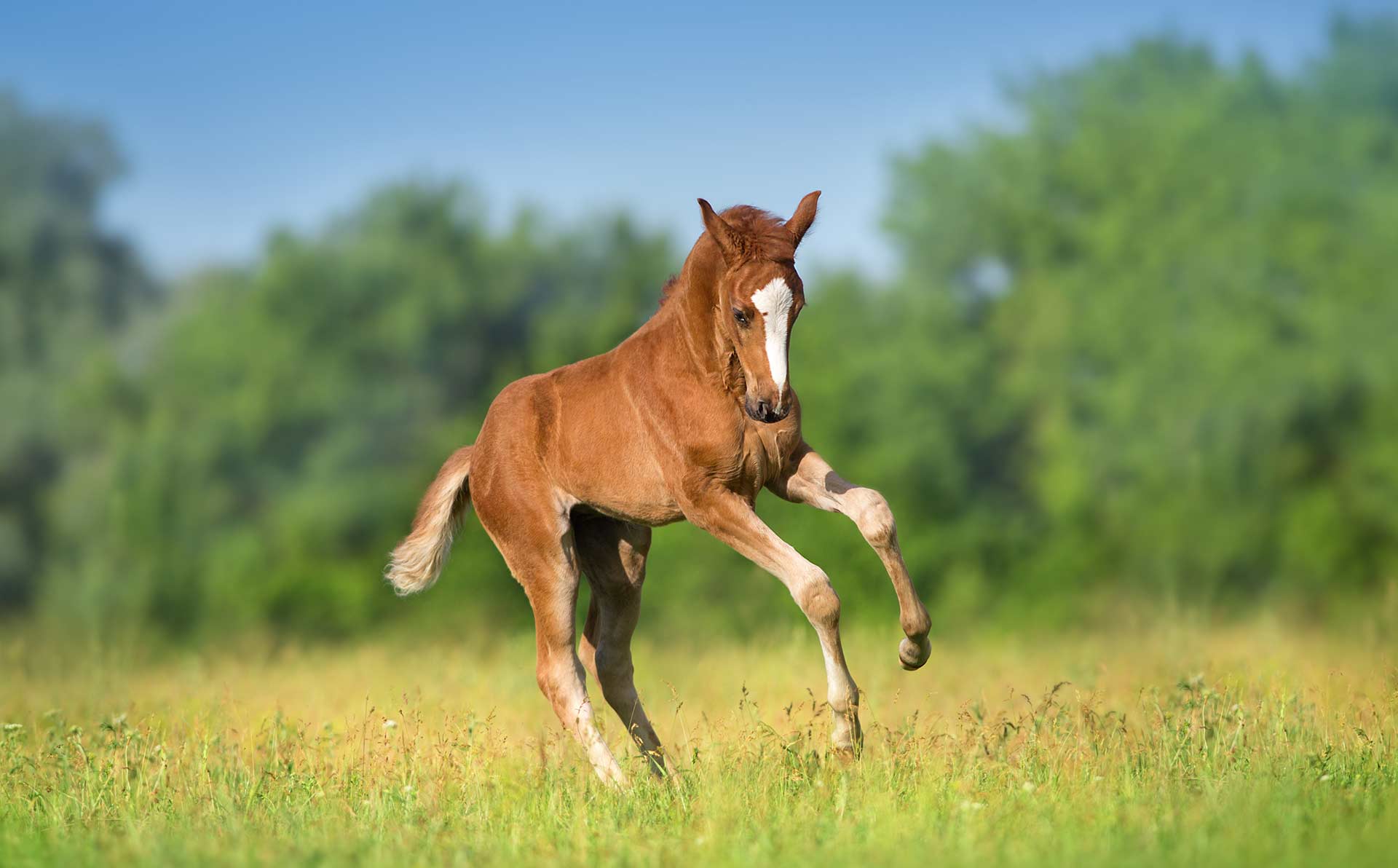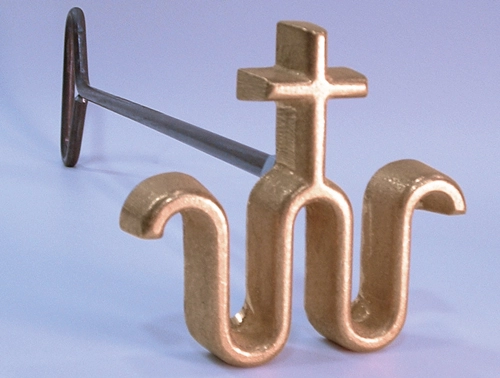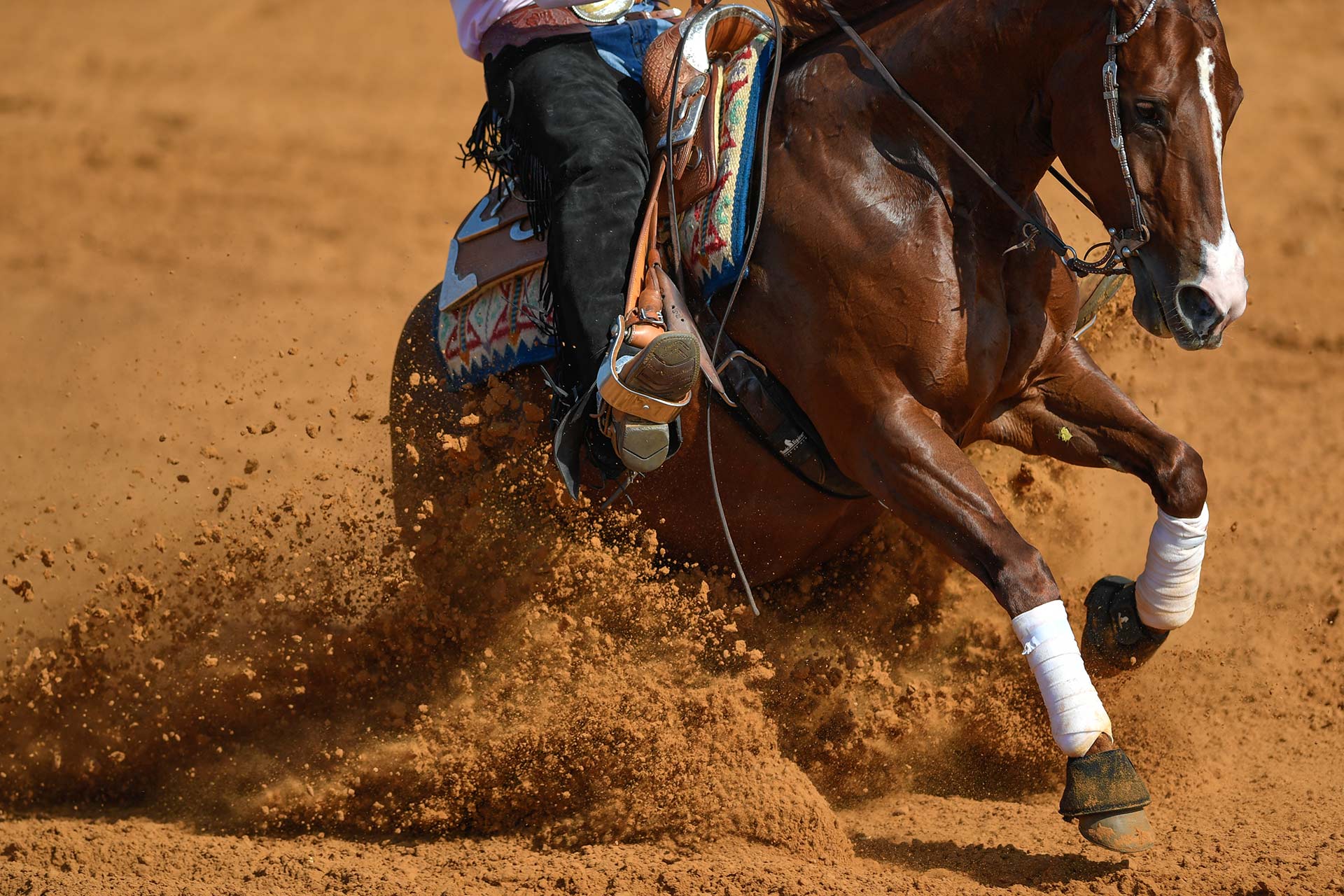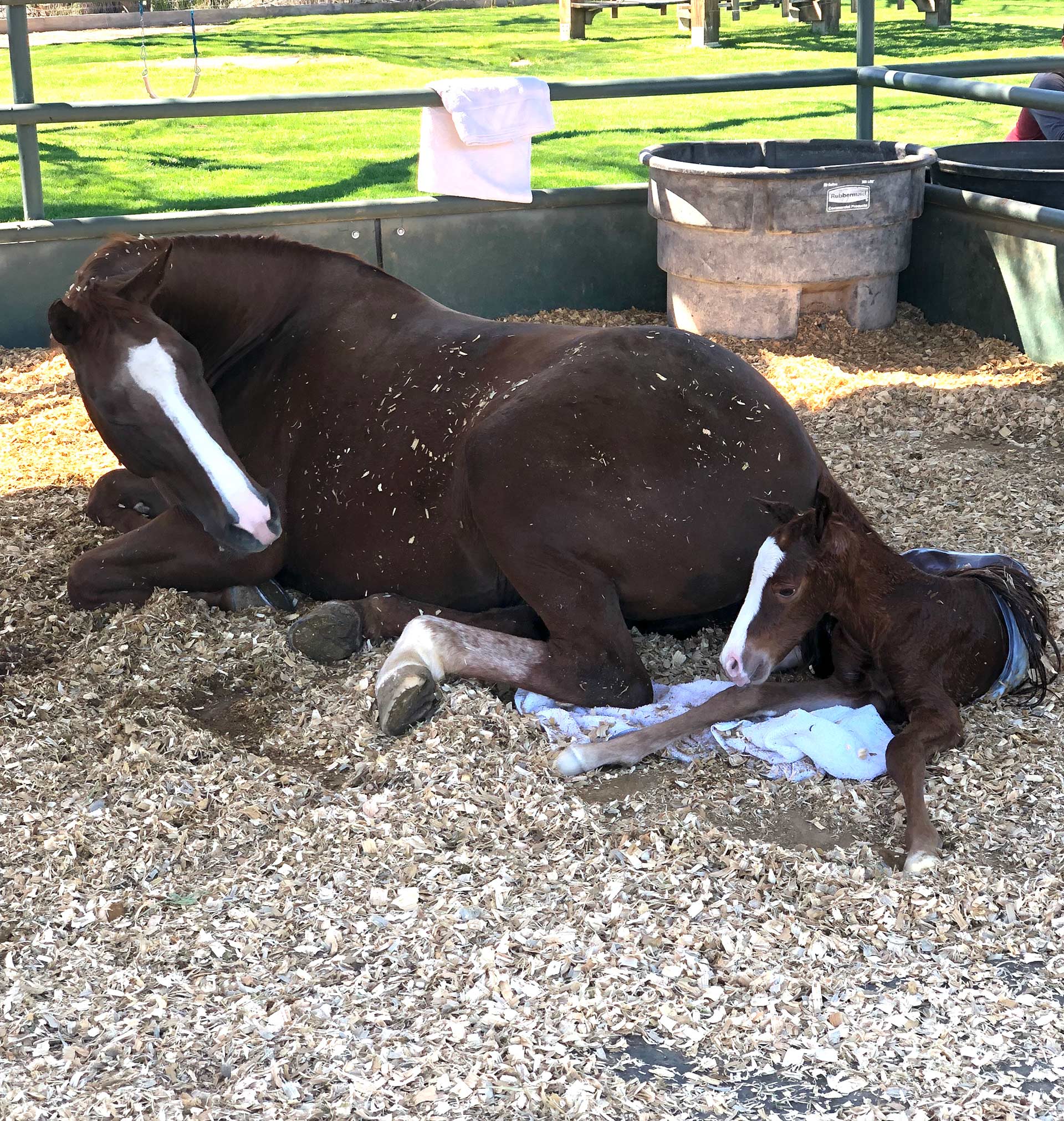 Your new foal has arrived! You are full of joy and overwhelmed with excitement. However, your job is not done. Over the next 24 hours after birth, it is important to continue to observe the mare and foal closely. Look for the following, and pay special attention to nursing:
Your new foal has arrived! You are full of joy and overwhelmed with excitement. However, your job is not done. Over the next 24 hours after birth, it is important to continue to observe the mare and foal closely. Look for the following, and pay special attention to nursing:
The foal should be breathing normally.
The foal should be bright and alert to its new surroundings. The foal should make attempts to rise within 30 minutes following its birth.
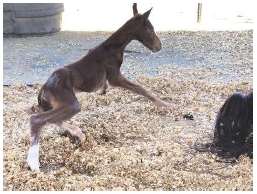 Within two hours of birth, the foal should stand and nurse. If the foal has not nursed within four hours, call your veterinarian. The foal may be weak and in need of assistance or medical attention. (See more about the importance of nursing and colostrum below.)
Within two hours of birth, the foal should stand and nurse. If the foal has not nursed within four hours, call your veterinarian. The foal may be weak and in need of assistance or medical attention. (See more about the importance of nursing and colostrum below.)
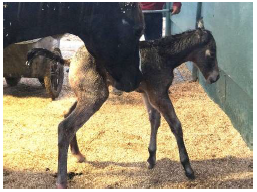 The foal should pass meconium (the first sticky, dark stool) within 12 hours after birth. If not, an enema may be needed. We recommend using an Enema (standard adult size) after birth to help ensure the passing of meconium and lesson the changes of problems. Female foals do not urinate until about 11 hours after birth; male foals may take six hours to urinate after foaling.
The foal should pass meconium (the first sticky, dark stool) within 12 hours after birth. If not, an enema may be needed. We recommend using an Enema (standard adult size) after birth to help ensure the passing of meconium and lesson the changes of problems. Female foals do not urinate until about 11 hours after birth; male foals may take six hours to urinate after foaling.
Many foals begin life with weak legs. Do not be overly concerned if the baby is down in the pasterns and fetlocks for the first day or two of life. They will generally straighten up. However, if you see extreme deviations of limbs or note other physical problems, or the condition persists, consult your veterinarian.
The mare should be non-aggressive, curious, and accepting of her newborn. Occasionally a mare will reject her foal. Foal rejection is more common in maiden mares. In such a case, the mare can be aggressive, kicking and biting. The foal should be removed and reintroduced with the mare under restraint and or sedation given by your veterinarian.
The mare should be bright and alert. Allow her to eat as soon as she is ready and supply plenty of clean, fresh water. You may wish to check the mare’s temperature and other vital signs periodically within the first 24 hours to make sure they are normal. An elevated temperature may indicate infection (normal range is 99.5 to 101.5 F).
The Importance of Colostrum
It is essential that the foal receive an adequate supply of colostrum. Colostrum, the mare’s first milk, which is extremely rich in antibodies. It provides the foal with passive immunity to help prevent disease until its own immune system kicks in.
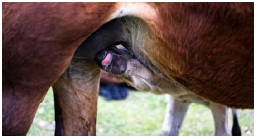 A foal must receive colostrum within the first eight to 12 hours of life in order to absorb the antibodies. If a foal is too weak to nurse, it may be necessary to milk the mare and give the colostrum to the foal via a stomach tube, contact your veterinarian. If a mare appears to be leaking milk prior to birth, consult your veterinarian. For orphan foals, or mares without an adequate supply of colostrum, it is important to locate a backup supply. Without it, the foal is at an increased risk of infections. Consult your veterinarian.
A foal must receive colostrum within the first eight to 12 hours of life in order to absorb the antibodies. If a foal is too weak to nurse, it may be necessary to milk the mare and give the colostrum to the foal via a stomach tube, contact your veterinarian. If a mare appears to be leaking milk prior to birth, consult your veterinarian. For orphan foals, or mares without an adequate supply of colostrum, it is important to locate a backup supply. Without it, the foal is at an increased risk of infections. Consult your veterinarian.
Your veterinarian can test the colostrum to determine whether it is rich in antibodies. Doing a blood test on the foal at 18 to 24 hours of age to evaluate IgG antibody levels will determine if the foal received adequate levels of rich colostrum. Most of the absorption (85 percent) takes place within the first six to eight hours. The foal can be tested when it is twelve hours old, and if IgG is deficient, it can be supplemented. If you wait until the foal is 24 hours old to evaluate IgG absorption and it proves to be inadequate, your only option will be a plasma transfusion. If IgG is inadequate, treatment for Failure of Passive Transfer (FPT) should be instituted by your veterinarian.

When to Call the Vet
If you notice any problems in the first 24 hours after birth, especially issues with nursing within the first 4 hours, call your veterinarian. It is better to have the foal or mare checked early, before any possible issues become complicated. Bandalero Ranch Equine Veterinary offers a full range of reproductive, foaling, and postpartum care services. Call us at 520-760-6200.




